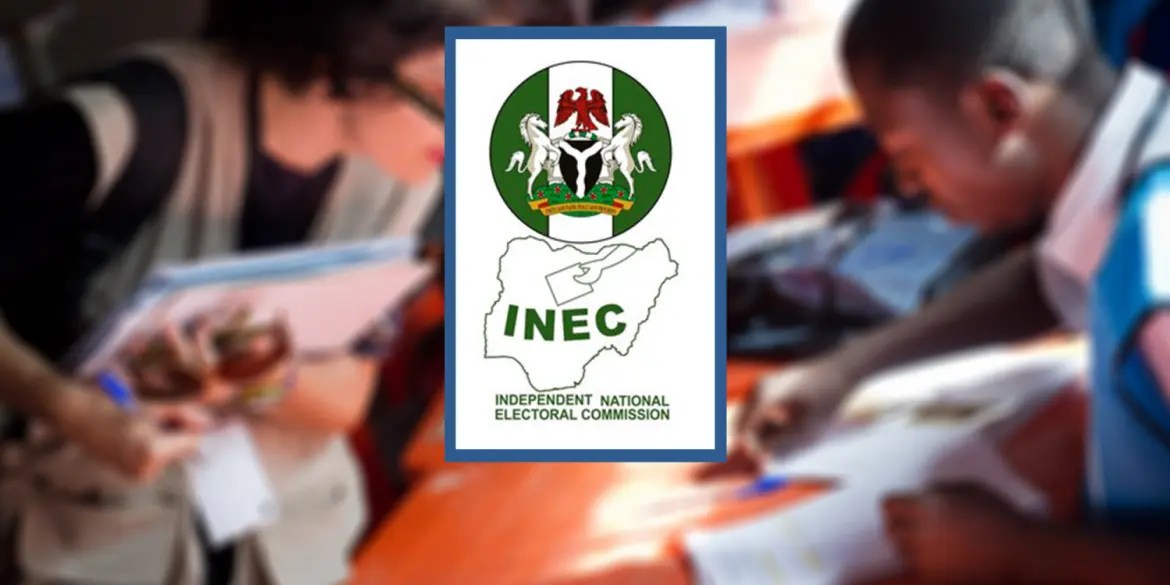POLITICS
INEC seeks active IDP participation in electoral, decision making process

The Independent National Electoral Commission (INEC) on Thursday called for bold steps to be taken to enhance participation of Internally Displaced Persons (IDPs) in the electoral and decision-making process.
Prof. Kunle Ajayi, the INEC National Commissioner supervising Ogun, Ondo and Osun states, made the call in Abuja, at the training of IDP Coordinators on 2022 Regulations and Framework for Voting by IDPs.
The training was organised by The Albino Foundation (TAF) Africa with funding from the European Union, and had the theme: “Enhancing IDPs Participation in the Electoral Process”.
Ajayi, who was represented by Mrs Dorothy Bello, Director, Gender and Inclusivity, said that the insights and perspectives of IDPs were invaluable.
He said that their experiences could enrich the policy-making dialogue, leading to more inclusive and equitable outcomes for all.
“It is important to address the active involvement of IDPs in the electoral process, as inclusive participation of all citizens, regardless of their circumstances is the key to building a stronger and more resilient nation.
“The plight of IDPs is an issue of grave concern, displaced from their homes due to conflict, natural disasters, or other unfortunate events they often endure immense hardships and face multiple challenges daily.
“In spite of their struggles, they remain an integral part of our society, and their voices deserve to be heard,” he said.
To ensure their full involvement, the INEC commissioner advocated for the establishment of accessible and well-organised voter registration centres in IDP camps and host communities.
This, he said, would allow IDPs to easily register as voters and exercise their right to vote without undue burdens.
He stressed that as an inclusive commission, implementation of voter education programmes tailored to the specific needs of IDPs, aiming at informing them about their rights, electoral process, and significance of their participation was very crucial.
Ajayi noted that INEC with collaboration of relevant stakeholders could mobilise resources and expertise to ensure that IDPs were adequately represented and their interests safeguarded in the political sphere.
He, however, acknowledged that IDPs, due to their unique circumstances, may face obstacles that hindered their ability to engage fully in various aspects of life.
To address this, the INEC commissioner called for collective effort towards creating an inclusive and enabling environment that encouraged and empowered IDPs to actively participate in the democratic process.
On INEC’s part, Ajayi said, a framework to address the participation of IDPs in elections had been developed.
“This framework is designed to ensure that IDPs can exercise their right to vote and participate in the electoral process in spite of their displaced status.
“The key elements of the INEC IDP Framework for Elections include – voter registration, voter education, and security, sensitisation and data collection.”
Some of the IDP coordinators, while baring their grievances over the 2023 general election, said that they were neglected and disenfranchised as some could not register to vote, while some who registered did not get their permanent voter cards.
Some others said that they could not get a means of transportation to the polling units where they were to vote.
They, however, advocated for polling units and registration centres to be located in the IDP camps to ease the burden on them.
Rev. Victor Yahaya, the coordinator for Tagama IDP, Samaru-Kataf in Zango-Kataf LGA of Kaduna State, said that the framework for IDPs had not been widely publicised and that they were not aware of it.
He said if IDPs were aware of their rights as citizens and the provisions made for them to participate in the electoral process, it would go a long way in helping them exercise their rights.
“This framework that we just learned about today, we are hearing about it for the first time in this programme. We have never talked about anything of that nature, so to me, it is just on paper and not meant for the IDPs.
“If it was meant for the IDPs, government will find a way to come down to the camps to educate us about it,” Yahaya said.
He, however, said that the knowledge gained at the training and the provisions of the framework would be disseminated to people in the camps to enable them get enlightenment on the electoral process as it pertained to them.
The Programmes Manager, TAF Africa, Mr Olayemi Samuel, said that the aim of the training was to increase IDP camp coordinators’ knowledge on the contents of the revised 2022 regulations and framework for voting by IDPs.
Samuel said that increasing IDP camp coordinators knowledge would enhance their networking and collaboration on increasing IDPs participation in elections.
“I think it is very important to continue to sensitise IDPs because beyond the general election there is local government elections, and we feel that it is not only important but their right to be fully involved in the process.
“We are having these conversations to get feedback from IDPs through their coordinators and the 2022 regulations framework actually made provisions for their participation in the election.”
He added that 38 coordinators drawn from Adamawa, Kaduna, Benue, Bayelsa and other states were participating in the training.




 Davido's Net Worth & Lifestyle
Davido's Net Worth & Lifestyle 
